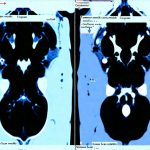Unexplained weight changes – both gain and loss – can be incredibly unsettling. They often trigger anxiety, not just about physical appearance but also concerning underlying health issues. While fluctuations are normal (everyone experiences some variation!), significant shifts without intentional lifestyle adjustments (diet, exercise) warrant investigation. It’s important to remember that weight is a complex physiological marker; it’s rarely the whole story. Understanding why your weight has changed requires a systematic approach and, crucially, collaboration with healthcare professionals. This article will explore best practices for testing after unexplained weight changes, focusing on what to expect during evaluation and how to advocate for appropriate care.
The human body is remarkably resilient, but it also communicates through signals – often subtle ones. Unexplained weight change isn’t just about the number on the scale; it’s a potential symptom, indicating that something within your internal system may be imbalanced. Dismissing these changes can delay diagnosis and potentially impact long-term health outcomes. This is not to instill fear but rather encourage proactive engagement with your wellbeing. The following information aims to empower you to navigate the testing process confidently and work effectively with your healthcare team. Remember, this isn’t a substitute for professional medical advice; it’s designed as an informative guide to prepare you for conversations with your doctor.
Initial Evaluation & Common Tests
The first step when experiencing unexplained weight changes is typically a visit to your primary care physician. This initial evaluation usually involves a detailed patient history and physical examination. The physician will ask about the specifics of the weight change – how much, over what timeframe, and any associated symptoms. Be prepared to discuss: – Recent dietary habits (even if you haven’t consciously changed them) – Exercise levels – Stressors in your life – Family medical history – Any medications you are taking (including over-the-counter drugs and supplements) – Changes in bowel habits or appetite – Sleep patterns.
The physical exam will assess overall health, looking for visible signs related to potential causes of weight change. Following this initial assessment, a suite of common tests is usually ordered as a baseline investigation. These typically include: – Complete Blood Count (CBC): This assesses red blood cells, white blood cells, and platelets, helping detect anemia, infection, or other blood disorders. – Comprehensive Metabolic Panel (CMP): This evaluates kidney and liver function, electrolyte balance, and blood sugar levels – important indicators for many conditions. – Thyroid Stimulating Hormone (TSH): Thyroid imbalances are a frequent cause of weight changes, so this is almost always included. Further thyroid testing might follow based on TSH results. – Urinalysis: This checks for kidney problems, infection, and diabetes.
These initial tests provide a broad overview and can often pinpoint common causes like thyroid disorders or nutrient deficiencies. However, if these come back normal, further investigation is necessary. It’s crucial to communicate clearly with your doctor about any persistent symptoms or concerns even after these initial tests are completed. Don’t hesitate to advocate for more in-depth evaluation if you feel something isn’t right. Perhaps keeping a best practices for a food journal can help track changes and provide valuable information to your doctor.
Advanced Diagnostic Testing Considerations
If the baseline tests don’t reveal a clear explanation, advanced diagnostic testing may be required. The specific tests ordered will depend on your individual symptoms and medical history. Your doctor might consider: – Testing for Celiac Disease: This autoimmune disorder triggered by gluten can cause malabsorption and weight loss or gain. Testing typically involves blood tests and potentially an intestinal biopsy. – Fecal Occult Blood Test (FOBT) & Colonoscopy: These are used to screen for gastrointestinal bleeding, which could contribute to unexplained weight loss. – Imaging Studies (CT scan, MRI): These can help identify tumors, organ abnormalities, or inflammation that might be contributing to the weight change. The choice of imaging depends on suspected areas of concern.
It’s important to understand that advanced testing isn’t always straightforward. Some tests require specific preparation, and results may not be immediately available. Don’t panic if more testing is needed; it simply means your doctor is being thorough in their investigation. Additionally, the cost of these tests can vary significantly depending on insurance coverage and location. Discussing potential costs with your healthcare provider beforehand is a prudent step. Consider smart food combining to help minimize digestive upset during this time.
Ruling Out Endocrine Disorders
Endocrine disorders frequently manifest through weight changes, making them a key area to investigate. Beyond initial TSH testing, further endocrine evaluation might involve: – Cortisol Levels: Elevated cortisol (Cushing’s syndrome) can lead to weight gain, particularly around the abdomen, while low cortisol (Addison’s disease) can cause weight loss and fatigue. Testing often involves blood, saliva or urine samples. – Diabetes Screening: While typically diagnosed through fasting blood glucose or A1c tests, unexplained weight changes might prompt a more detailed diabetes evaluation, including insulin levels. – Prolactin Levels: Elevated prolactin (hyperprolactinemia) can sometimes contribute to weight gain and other hormonal imbalances.
Accurate diagnosis of endocrine disorders requires careful interpretation of test results in conjunction with your symptoms. It’s vital that you discuss any medications you’re taking, as some drugs can interfere with hormone levels or mimic the symptoms of an endocrine disorder. A referral to an endocrinologist – a specialist in hormone disorders – may be necessary for comprehensive evaluation and management. Before heading out, review best practices for eating out to ensure you’re making choices that support your health.
Investigating Gastrointestinal Issues
The digestive system plays a crucial role in nutrient absorption, so problems within the GI tract can significantly impact weight. If initial tests are inconclusive, your doctor might investigate: – Malabsorption Syndromes: Conditions like Crohn’s disease or ulcerative colitis impair nutrient absorption, often leading to weight loss and other gastrointestinal symptoms. Testing may involve stool analysis, endoscopy, and colonoscopy. – Pancreatic Insufficiency: Inadequate pancreatic enzyme production can hinder digestion, resulting in malabsorption and weight loss. A fecal elastase test can help assess pancreatic function. – Small Intestinal Bacterial Overgrowth (SIBO): Excessive bacteria in the small intestine can interfere with nutrient absorption. Testing typically involves a breath test.
Gastrointestinal symptoms often overlap with other conditions, making accurate diagnosis challenging. It’s important to provide your doctor with detailed information about your bowel habits, abdominal pain, and any dietary intolerances you suspect. A referral to a gastroenterologist – a specialist in digestive disorders – can be beneficial for further investigation and management. You might also find relief through simple tea rituals that help soothe your gut.
Psychological Factors & Mental Health Assessment
While it’s essential to rule out physical causes first, psychological factors can also contribute significantly to unexplained weight changes. Stress, anxiety, depression, and eating disorders can all impact appetite, metabolism, and overall health. – Screening for Depression & Anxiety: Your doctor may use standardized questionnaires to assess your mental wellbeing. – Eating Disorder Evaluation: If there are concerns about disordered eating patterns, a referral to a specialist in eating disorder treatment is crucial. – Stress Management Assessment: Identifying sources of stress and developing coping mechanisms can be an important part of the evaluation process.
It’s vital to remember that acknowledging psychological factors isn’t diminishing your experience or suggesting it’s “all in your head.” It recognizes the powerful mind-body connection and emphasizes the importance of holistic care. Addressing underlying mental health concerns is often essential for restoring both physical and emotional wellbeing. Taking time for evening wind-down practices can help manage stress and promote restful sleep, contributing to overall well-being. Also, focusing on best cooking oils during meal preparation is another step toward prioritizing your health. If you’ve recently overeaten, consider these meal ideas for gut recovery.


















